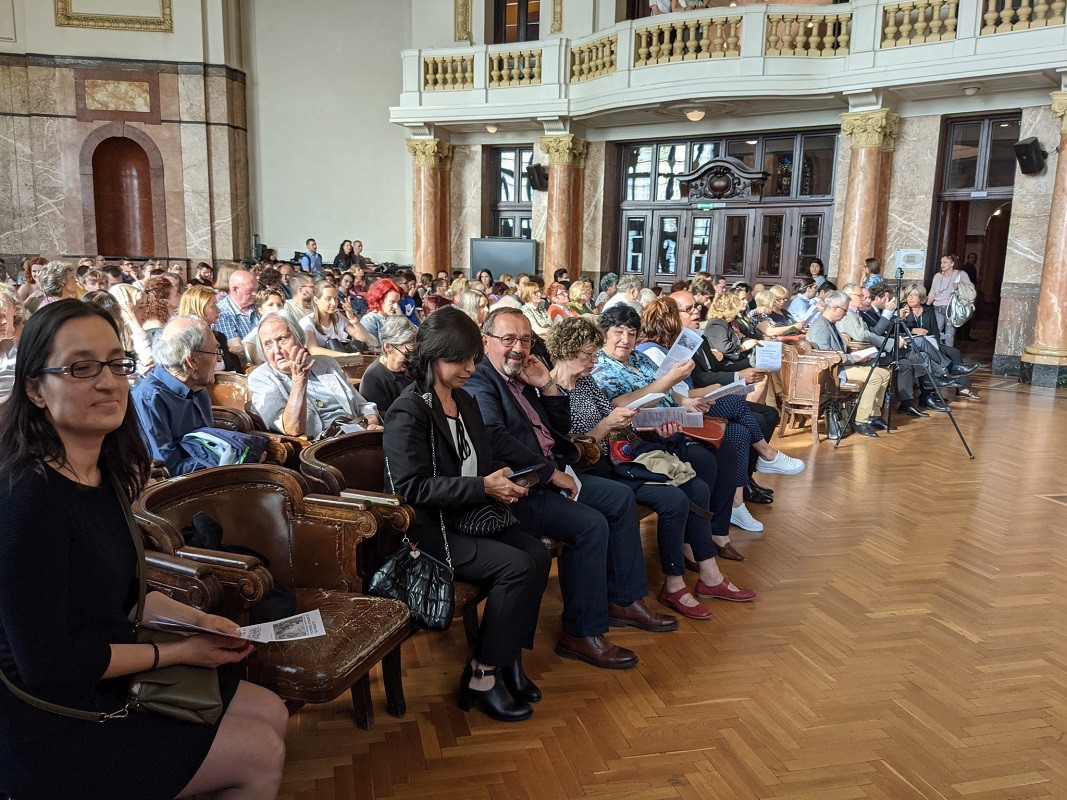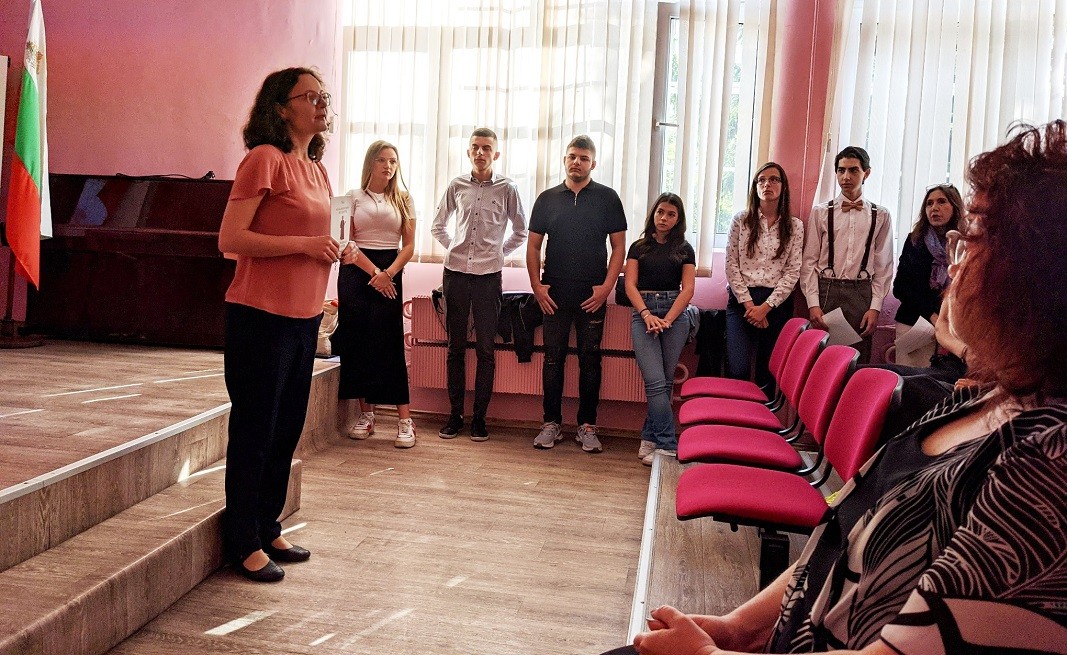Italian language continues to enjoy great popularity in Bulgaria. Many young Bulgarians love studying the language of Boccaccio and Dante Alighieri and enjoy Italian music and art.
In Bulgaria, Italian language is taught in four schools in Sofia, as well as in St. Kliment Ohridski University and New Bulgarian University. Italian language courses are organized by the Italian Cultural Institute in Bulgaria, as well as by many private schools.
While learning Italian pupils and university students also learn a lot about architecture, art, design, fashion, science and innovation. The main reason for this are the great achievements of Italy, says Radeya Gesheva, assistant professor in Italian Studies, part of the Romance Studies Department at Sofia University "St. Kliment Ohridski”. At the end of May, the 80th anniversary of Italian Studies in the university was marked with a solemn celebration:

"It is a great pleasure for us to promote the Italian language; this is our mission," Radeya Gesheva says. “We enjoy an incredible cooperation with the Italian Cultural Institute in Sofia and the Embassy of the Republic of Italy in Bulgaria. This is a bridge between cultures, through which we discover how close Bulgarian and Italian people are. We are close in our ways of interaction, as well as in terms of culture and our perception of art in general. I personally have many Italian friends who live in Bulgaria, as well as those who often come to visit our country. They are greatly impressed by Bulgarian culture, traditions and history. For them, everything is new because our country had long remained out of the attention of Italians as a tourist destination.”

According to Radeya Gesheva, the biggest similarity between Bulgarians and Italians is that they invest passion and emotion in everything they do.
"Lecturers and teachers strive to pass the attitude towards language and culture to our students. Teaching is a great responsibility and Italian Studies have a long tradition in Bulgaria, as well as continuity and connection between teachers and students. I have been teaching for 10 years and now many of my professors are also my colleagues. In addition to the love for the Italian language, they have given me their example of high professionalism and desire for improvement. These are the qualities that I want to pass on to my students," Radeya Gesheva says in conclusion.
English: Alexander Markov
Photos: BNR-archive, Facebook/filologiaitalianaThe first Dalmatian Pelican of this season hatched a few days ago in the protected area Kalimok - Brushlen near the Danube town of Tutrakan, reports the Bulgarian Society for the Protection of Birds "BirdLife Bulgaria". The parents are taking active..
More than 4,000 participants from 52 masquerade groups from all over the country will take part in the Jamala National Masquerade Festival in Kyustendil on 15 and 16 February. A children's folklore procession will start from Velbazhd Square at 10.30 a.m...
With more 40 thousand archaeological sites and artifacts, Bulgaria is a true open-air museum. In terms of the number of finds, this country ranks third in the world after Italy and Greece. From the Neolithic, eight millennia ago, to..
Exactly 3 years ago, on February 24, Russia’s invasion of Ukraine began – an event that woke up Europe 77 years after the end of World War II and called..

+359 2 9336 661
